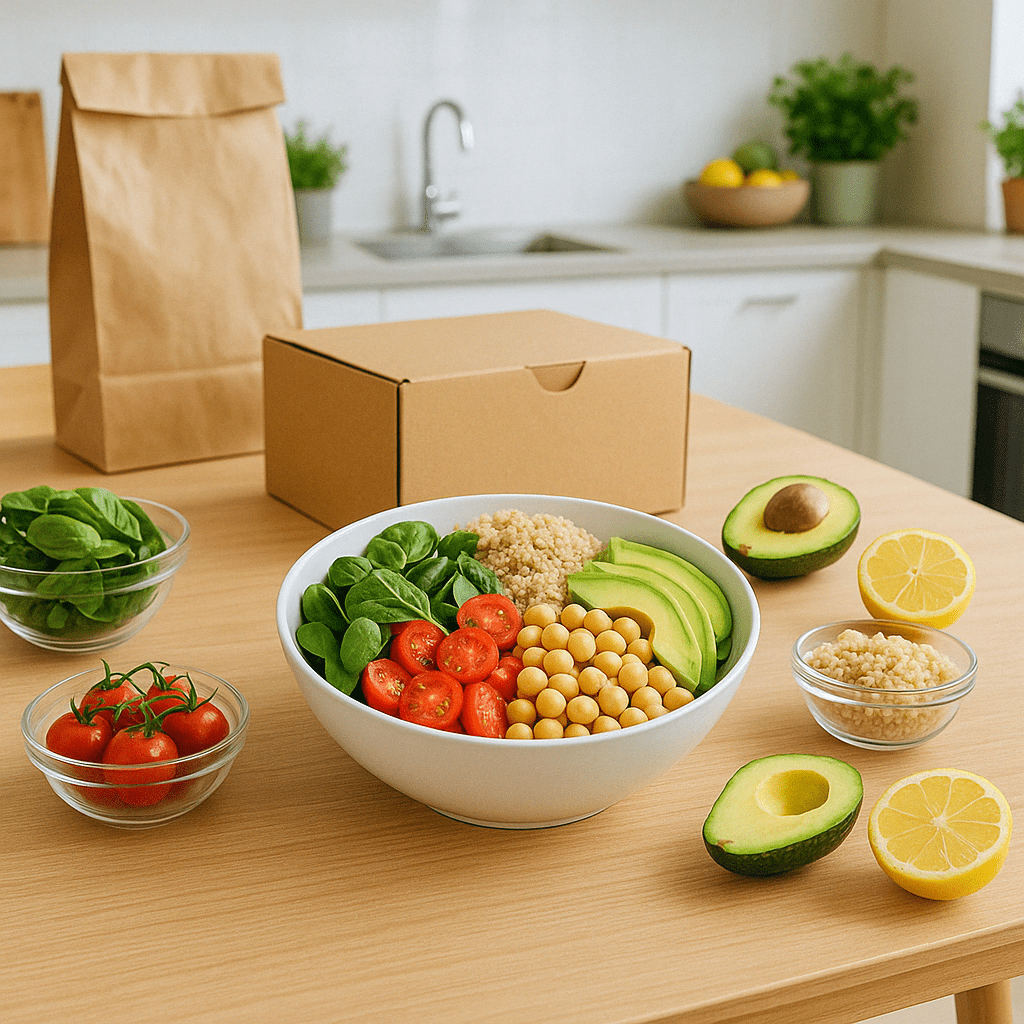In today’s fast-paced world, convenience and health are often seen as opposing forces when it comes to food choices. But a new wave of innovation in healthy salad meal delivery is rapidly reshaping that narrative. No longer do busy professionals, wellness enthusiasts, or those pursuing weight loss have to choose between grabbing something quick and eating nutritiously. By making fresh, nutrient-dense salads accessible and enjoyable, salad meal delivery services are reimagining what it means to eat well on the go. More importantly, they are aligning with science-backed dietary approaches that foster lasting health benefits.
You may also like: Smart Meal Prep for Weight Loss: Expert-Approved Lunch Ideas and Recipes to Stay on Track
As the demand for cleaner, plant-forward eating grows, so too does the market for personalized, health-conscious meal delivery. Services focused on salad meal prep delivery are answering this call with a wide range of customizable options, allowing consumers to select meals that fit their unique nutritional needs. These services emphasize whole foods, vibrant vegetables, plant-based proteins, and gut-friendly ingredients—all of which contribute to a healthier lifestyle and support weight management. For those seeking both wellness and practicality, the best salad meal delivery services represent a culinary evolution toward simplicity, freshness, and long-term vitality.
A Paradigm Shift in Nutritional Convenience
Healthy eating used to mean carving out hours each week for grocery shopping, meal prep, and cooking. However, this traditional model often doesn’t mesh well with the realities of modern schedules. That’s where the emergence of salad meal delivery comes in as a practical and transformative solution. These services capitalize on the nutritional power of vegetables while reducing the time, stress, and decision fatigue associated with meal planning. By offering pre-portioned, ready-to-eat options or salad meal prep delivery kits that require minimal assembly, they ensure that eating healthfully becomes an effortless part of everyday life.
This model not only removes logistical barriers but also invites consumers to explore new ingredients, flavors, and global cuisines. From Mediterranean-inspired chickpea and quinoa bowls to miso-ginger Asian salads, the diversity offered in these menus enhances satisfaction and adherence to healthier eating habits. Importantly, this shift toward salad-based meals aligns well with dietary patterns shown to improve metabolic health, cognitive function, and immune resilience.

Nutritional Foundations: The Power of Salad-Based Eating
Salads often get stereotyped as bland or insubstantial, but when thoughtfully composed, they are among the most nutrient-dense meals available. The core of a healthy salad meal delivery service lies in its emphasis on whole, plant-based ingredients. These include leafy greens rich in folate and vitamin K, colorful vegetables packed with antioxidants, legumes for fiber and protein, and healthy fats from nuts, seeds, or avocado. When combined, these components create balanced meals that are satiating, anti-inflammatory, and gut-friendly.
Scientific evidence supports the role of high-fiber, low-glycemic foods in regulating blood sugar and promoting weight loss. For example, a large body of research shows that increasing dietary fiber can enhance satiety, reduce appetite, and support a healthy microbiome—all critical for sustainable weight control. The best salad meal delivery services are built on these principles, making it easier for consumers to eat meals that foster both short-term satisfaction and long-term health.
Personalization Meets Plant-Based Precision
One of the most compelling aspects of modern salad meal delivery is the ability to personalize meals to suit specific dietary goals. Whether someone is following a plant-based lifestyle, managing food sensitivities, or seeking low-carb options, customization is key. Many services allow users to choose their preferred protein sources (e.g., lentils, tempeh, tofu, or grilled chicken), swap ingredients to avoid allergens, or select meals aligned with dietary protocols like paleo, Whole30, or vegan diets.
Importantly, this level of customization makes healthy eating more inclusive. Individuals with specific health goals or conditions—such as diabetes, high cholesterol, or digestive disorders—can choose meals that support their unique needs without sacrificing taste or variety. This is particularly relevant in the context of the ongoing discussion about the ketogenic diet vs low carb approaches. While not all salad meal delivery services focus explicitly on keto meals, many offer low-carb alternatives that allow users to explore whether a low carb diet keto diet style of eating suits their lifestyle. Understanding that not all low-carb diets are synonymous with the keto diet is crucial. For example, a keto diet is very low in carbohydrates and typically high in fat, while other low-carb diets may allow more dietary flexibility.
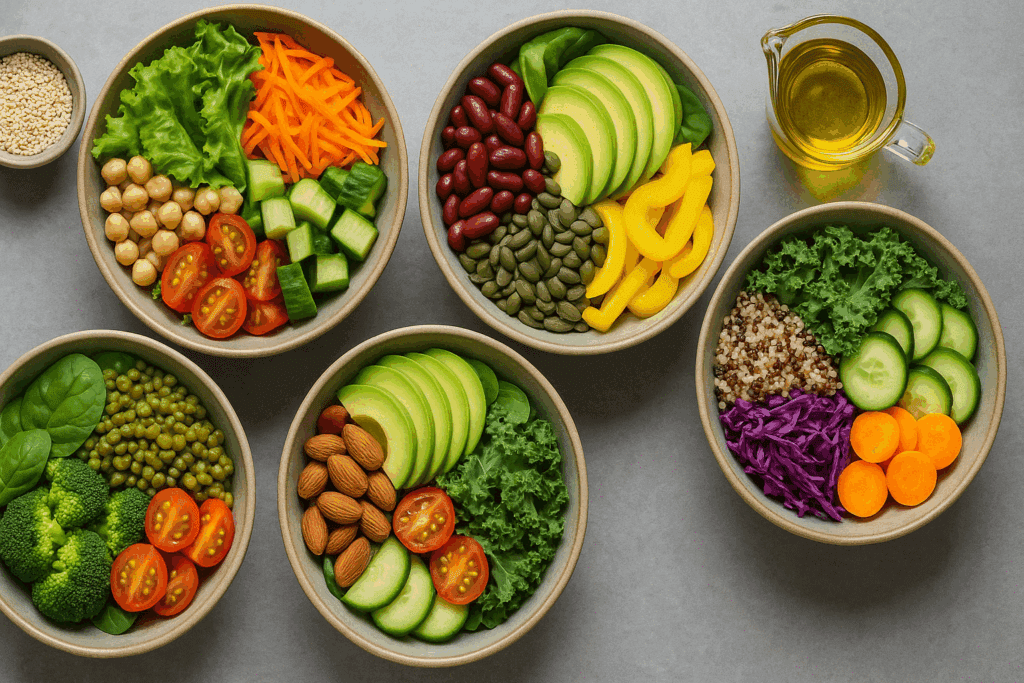
The Rise of Functional Ingredients in Salad Meal Prep
As consumers become more health-literate, there’s a growing emphasis on functional ingredients that do more than just taste good. Many healthy salad meal delivery options now highlight foods with specific health benefits, such as turmeric for its anti-inflammatory properties, fermented vegetables for gut health, or cruciferous greens like kale and broccoli for their cancer-protective compounds. These nutrient-rich additions elevate salads from side dishes to powerful wellness tools.
Functional ingredients also play a critical role in weight loss and metabolic health. For example, incorporating bitter greens like arugula or dandelion can help stimulate digestion and reduce bloating. Avocados provide monounsaturated fats that aid in satiety, while plant-based proteins help maintain muscle mass during caloric deficits. Services that offer thoughtfully composed salads with these ingredients not only support weight management but also deliver meals that are enjoyable and diverse in flavor.
Why Salad Meal Delivery Works for Sustainable Weight Loss
Unlike restrictive diets that often rely on elimination and deprivation, healthy salad meal delivery promotes abundance through variety. When meals are composed of high-volume, nutrient-rich ingredients, people naturally eat fewer calories while still feeling full and energized. This is why many users find salad meal prep delivery effective for gradual, sustainable weight loss without the psychological burden of traditional dieting.
Moreover, the built-in portion control and convenience reduce the risk of impulsive eating or relying on processed snacks. People are more likely to adhere to their health goals when the path is easy, enjoyable, and satisfying. Many nutrition experts agree that consistent dietary habits matter more than short-term fads. In this context, salad delivery services offer a pragmatic approach to achieving and maintaining a healthy body weight without resorting to extreme measures.
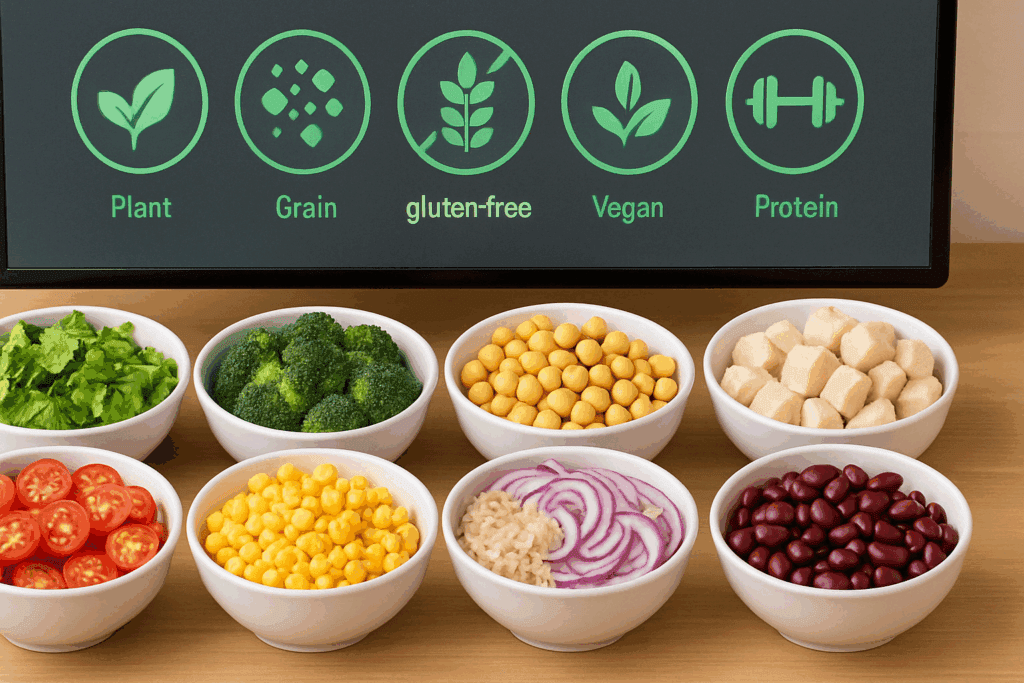
Keto and Low-Carb Diets: Salad Delivery in the Era of Carb-Conscious Eating
With the surge in popularity of carb-restricted eating patterns, many people wonder: is keto a low carb diet or something altogether different? While the answer depends on dietary composition, it’s important to recognize the nuances between the ketogenic diet vs low carb plans. The keto diet requires strict macronutrient ratios, often limiting carbohydrates to less than 50 grams per day to trigger ketosis. On the other hand, a low-carb approach might simply reduce carb intake to under 150 grams without aiming for ketosis.
This distinction matters when choosing meal delivery services. Some platforms now cater specifically to keto followers by offering meals with zero grains, root vegetables, or added sugars. Others lean toward balanced low-carb meals that still include fiber-rich legumes and moderate-carb vegetables. For consumers navigating between a keto diet vs low carb diet, salad delivery services offer a flexible and customizable way to test which approach feels most sustainable. It’s worth noting that extreme carb restriction can lead to challenges in adherence and nutrient sufficiency, so a personalized approach is often best.
Is Keto a Good Diet for Everyone?
While the keto diet has been promoted for weight loss and blood sugar control, it’s not universally beneficial. Some individuals thrive on a ketogenic lifestyle, while others experience fatigue, digestive issues, or difficulty maintaining the regimen long-term. Thus, when evaluating whether is keto a good diet for you, it’s essential to consider your personal health goals, activity level, and food preferences.
Healthy salad meal delivery services that incorporate low-carb yet diverse meals provide an excellent middle ground for people curious about reducing carbs without committing fully to keto. This is especially relevant given concerns around nutrient deficiencies in highly restrictive diets. Meals rich in leafy greens, non-starchy vegetables, and plant-based proteins support metabolic health without the extremes often associated with strict keto diets.
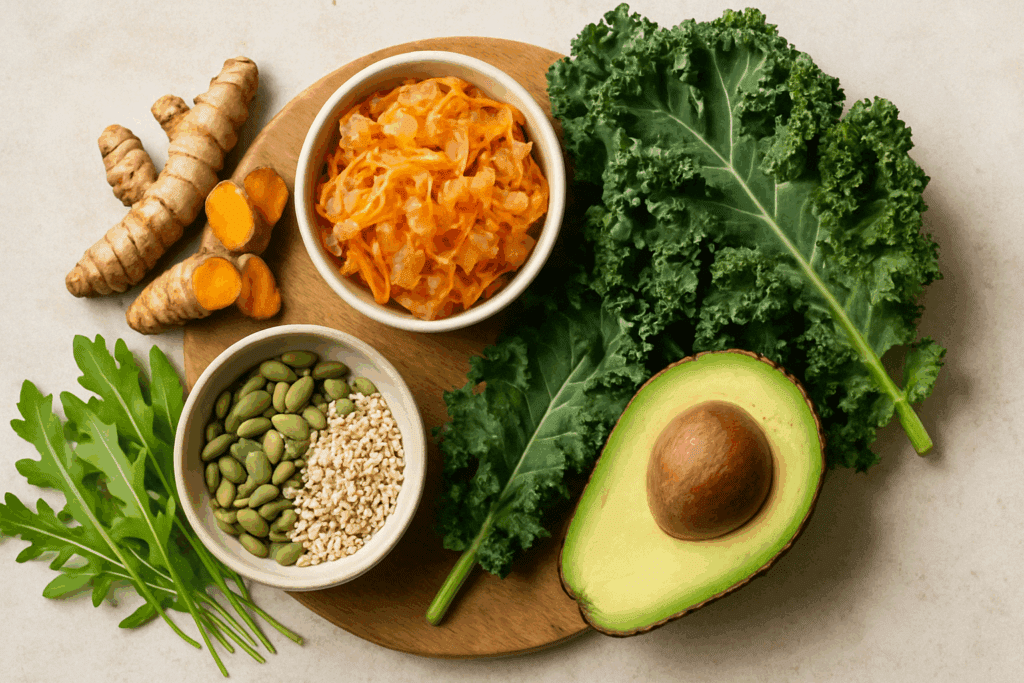
Sustainability and the Question: Is a Keto Diet Sustainable?
Another key consideration is long-term viability. Is a keto diet sustainable over months or years? For many, the answer is no. The social and practical limitations—such as dining out, travel, and holiday meals—can make adherence difficult. Salad meal prep delivery offers a more sustainable route by making healthy eating accessible and enjoyable without the rigidity of a strict diet. These services reduce friction by removing the guesswork and preparation time, making it easier to build lasting habits that align with your values and lifestyle.
Even for those who choose to follow a keto-inspired plan, salad delivery services offer versatility. You can choose meals that are naturally low in carbs without resorting to monotony or missing out on micronutrients. And because salads can be endlessly customized, they adapt well to different phases of eating, whether you’re cycling carbs, transitioning off keto, or simply eating intuitively.
Healthy Salad Delivery and Plant-Based Eating: A Natural Alliance
Salad meal delivery also fits perfectly within the framework of plant-based eating. While not all services are vegan or vegetarian, many prioritize plant-forward options that reduce reliance on animal products. This not only supports ethical and environmental goals but aligns with research showing that diets high in whole plant foods reduce the risk of chronic diseases.
Consumers often ask related questions like: “Can vegetarians eat eggs and milk?” or “Does vegetarian eat butter?” and “Do vegetarians eat rice?” The answers depend on the type of vegetarianism practiced. Lacto-ovo vegetarians, for instance, do eat eggs and milk and may consume butter, while others avoid all animal-derived products. Rice, as a plant-based staple, is widely consumed across all vegetarian diets.
In this context, salad meal delivery offers flexibility. Whether you’re fully vegan or flexitarian, you can select meals that align with your beliefs and nutritional needs. Plant-based proteins like chickpeas, tempeh, tofu, and quinoa make it easy to meet protein needs while enjoying meals that are satisfying, colorful, and rich in flavor. This approach supports both personal health and planetary sustainability.
Rethinking What It Means to Eat Well
Ultimately, salad meal delivery services represent more than just a trend—they are a paradigm shift in how we view nourishment, convenience, and self-care. They offer a modern solution to the age-old problem of how to eat better without giving up time, flavor, or enjoyment. With increasing options tailored to dietary preferences, health goals, and ethical considerations, healthy salad meal delivery is poised to become a cornerstone of the wellness economy.
As more consumers seek out alternatives to ultra-processed foods and crash diets, salad-based meals provide a refreshing and practical path forward. And with rising interest in the best salad meal delivery services that offer functional nutrition and culinary creativity, there’s never been a better time to make the switch to smarter eating.
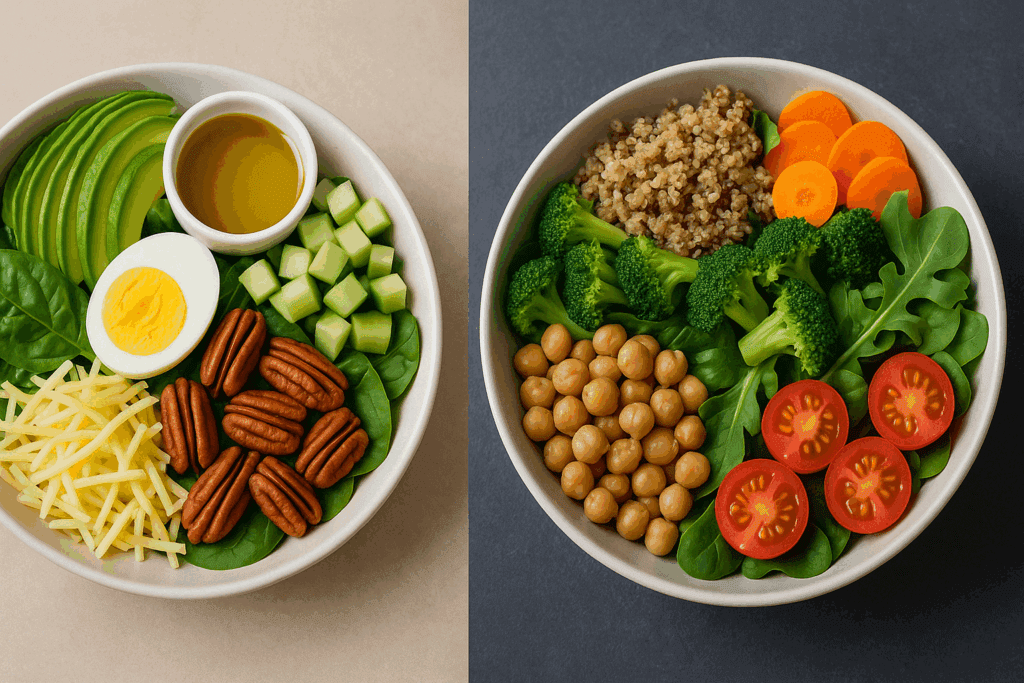
Frequently Asked Questions: Healthy Salad Meal Delivery for Wellness and Weight Loss
1. How do salad meal delivery services differ from traditional meal delivery platforms?
Salad meal delivery services are specifically designed to prioritize freshness, nutrient density, and plant-based ingredients over general meal variety. Unlike standard platforms that may focus on comfort foods or convenience alone, healthy salad meal delivery emphasizes whole foods and balanced macronutrients, particularly fiber, healthy fats, and plant proteins. These services often feature more seasonal produce, locally sourced ingredients, and minimal processing. They are also typically aligned with wellness goals such as weight loss, gut health, and metabolic stability. In contrast, many traditional meal kits may include high-sodium sauces, refined carbs, and less flexibility for special diets, making salad-focused delivery a more specialized and health-forward option.
2. What makes the best salad meal delivery services stand out in terms of nutrition and sustainability?
The best salad meal delivery services go beyond ingredient quality by embracing eco-conscious packaging, carbon-neutral shipping, and partnerships with regenerative farms. They tend to offer dishes rich in phytonutrients, antioxidants, and micronutrients rarely found in standard meal kits. A notable trend is the incorporation of functional ingredients like fermented foods, omega-3-rich seeds, and adaptogenic herbs, which support hormonal balance and stress resilience. Additionally, these services often provide detailed sourcing transparency and nutrient breakdowns, which appeal to consumers who value environmental responsibility alongside personal health. This dual commitment to nutrition and sustainability positions the best salad meal delivery providers at the intersection of ethical eating and functional wellness.
3. Can salad meal prep delivery help improve long-term adherence to a healthy eating plan?
Yes, and often in surprising ways. Salad meal prep delivery removes key friction points that typically derail healthy eating—namely, lack of time, decision fatigue, and limited access to fresh ingredients. When meals are prepped with balanced macros and bold flavors, users are more likely to stick to their dietary goals. The predictability and ease of scheduled delivery also reduce the likelihood of impulse eating or skipping meals altogether. Furthermore, regular exposure to new ingredients and global flavor profiles helps prevent palate boredom, making long-term commitment to healthful eating far more achievable.
4. How do healthy salad meal delivery services support gut health and digestive function?
Healthy salad meal delivery services often prioritize prebiotic and probiotic ingredients that nourish the gut microbiome. Many meals include fermented vegetables like kimchi or sauerkraut, as well as fiber-dense ingredients such as lentils, chickpeas, and leafy greens. These components help diversify gut flora, reduce inflammation, and improve digestion over time. In addition, cold-pressed dressings made with apple cider vinegar, lemon juice, or tahini can support stomach acid levels and bile flow, further aiding nutrient absorption. Unlike standard fast food or even traditional meal kits, these salads are specifically curated to nourish digestive function and support systemic health.
5. Are there psychological benefits to subscribing to a salad meal delivery service?
Absolutely. Establishing a rhythm with healthy salad meal delivery can create a sense of control, confidence, and reduced stress around food choices. This can be especially beneficial for individuals recovering from diet fatigue or unhealthy relationships with food. Consistent exposure to colorful, thoughtfully prepared meals may also improve food appreciation and mindfulness around eating. The act of nourishing oneself with high-quality ingredients becomes a form of self-care, reinforcing positive mental and emotional associations with food. Furthermore, the intentional design of salad meal prep delivery plans can help users reframe mealtime as a ritual of wellness rather than a chore or a calorie count.
6. How can salad meal delivery fit into fitness-focused lifestyles or athletic training routines?
Salad meal delivery can be an excellent complement to athletic training, particularly when meals include ingredients that support muscle recovery, hydration, and endurance. Salads featuring quinoa, hemp seeds, roasted sweet potatoes, and dark leafy greens offer a powerful mix of complex carbohydrates, plant-based proteins, and electrolytes. Services catering to active individuals may also include high-protein options or allow users to add plant-based protein boosters like tempeh or edamame. The nutrient density of these meals supports optimal performance while reducing systemic inflammation. For those on strict training regimens, salad meal prep delivery ensures consistent macro intake without the hassle of meal planning or grocery shopping.
7. What should you look for when choosing the best salad meal delivery service for your specific dietary needs?
Choosing the best salad meal delivery service involves evaluating both nutritional content and customization options. Look for companies that allow filtering by dietary preferences such as gluten-free, vegan, paleo, or nut-free. Equally important is ingredient transparency and the ability to review full nutritional data for each meal. A good service will also offer flexible portion sizes and diverse flavor profiles to avoid monotony. It’s worth considering whether the provider uses organic ingredients, eco-friendly packaging, or supports small farms—factors that may align with personal values and long-term lifestyle goals.
8. How does salad meal prep delivery support families or households with mixed dietary needs?
Salad meal prep delivery services often offer mix-and-match components, allowing each household member to tailor meals according to their preferences or restrictions. This flexibility is especially useful in families with diverse dietary needs—for example, where one person may prefer low-carb and another is vegetarian. Some providers allow bulk ordering of core ingredients like grains, proteins, and dressings, which can then be assembled differently depending on individual requirements. The modular nature of these meals fosters inclusivity and reduces the need for separate cooking sessions, making shared meals more harmonious. Additionally, the simplicity and visual appeal of these meals can encourage children to explore new vegetables and develop healthy eating habits early.
9. Are there emerging innovations in the healthy salad meal delivery space that consumers should know about?
Yes, the healthy salad meal delivery industry is rapidly evolving, with several exciting innovations on the horizon. AI-driven personalization is enabling services to tailor menus based on biomarkers, mood tracking, or wearable fitness data. Some platforms are experimenting with biodegradable insulation and reusable containers to reduce waste. Others are incorporating vertical farm produce for fresher, hyper-local greens with a smaller environmental footprint. In the future, consumers can expect even greater integration of tech and nutrition, with salad meal delivery becoming part of a broader wellness ecosystem that includes supplementation, coaching, and metabolic monitoring. These developments make the best salad meal delivery services more dynamic and impactful than ever.
10. How can travelers or digital nomads maintain a healthy diet using salad meal delivery services?
While travel can disrupt healthy routines, many salad meal delivery services offer nationwide or regional shipping, enabling users to receive meals wherever they are. Some services even partner with coworking spaces, gyms, or hotels to provide delivery hubs for digital nomads. These options eliminate the need to rely on restaurant food or convenience store snacks while on the road. Additionally, meals can often be ordered in advance and stored with portable refrigeration options, making them accessible throughout a trip. For travelers seeking balance and nutrition without compromise, salad meal prep delivery offers a reliable anchor in an otherwise unpredictable routine.

Conclusion: Why Smart Salad Meal Delivery Could Be the Wellness Solution You’ve Been Waiting For
In a world where nutrition science and lifestyle practicality often seem at odds, healthy salad meal delivery services strike a powerful balance. By bringing together the science of whole-food nutrition, the efficiency of modern logistics, and the creativity of culinary arts, they make healthy eating accessible, enjoyable, and effective. Whether your goal is weight loss, better metabolic health, or simply reducing reliance on ultra-processed foods, these services can help you build sustainable habits with minimal effort.
For those navigating complex dietary decisions—including whether to follow a low-carb lifestyle, explore the ketogenic diet vs low carb strategies, or simply add more plant-based meals—salad delivery services provide real-world solutions. They offer the flexibility to explore whether is keto a low carb diet that works for you or whether a more balanced approach suits your needs better. And most importantly, they help answer the question: is a keto diet sustainable, or is there a better way to eat well every day?
As the conversation around health, food, and sustainability evolves, salad meal delivery is emerging as a smart, fresh, and forward-thinking option for those who value their health but refuse to compromise on flavor, convenience, or nutritional integrity. In this way, it embodies the best of modern mindful eating—and offers a delicious path to long-term wellness.
Was this article helpful? Don’t let it stop with you. Share it right now with someone who needs to see it—whether it’s a friend, a colleague, or your whole network. And if staying ahead on this topic matters to you, subscribe to this publication for the most up-to-date information. You’ll get the latest insights delivered straight to you—no searching, no missing out.
Further Reading:
We Tried the 8 Best Organic Meal Delivery Services of 2025
We Tried the 10 Best Meal Delivery Services for Weight Loss for 2025
What Happens to Your Body When You Eat Salad Every Day
Disclaimer
The information contained in this article is provided for general informational purposes only and is not intended to serve as medical, legal, or professional advice. While NewsHealthWatch strives to present accurate, up-to-date, and reliable content, no warranty or guarantee, expressed or implied, is made regarding the completeness, accuracy, or adequacy of the information provided. Readers are strongly advised to seek the guidance of a qualified healthcare provider or other relevant professionals before acting on any information contained in this article. NewsHealthWatch, its authors, editors, and contributors expressly disclaim any liability for any damages, losses, or consequences arising directly or indirectly from the use, interpretation, or reliance on any information presented herein. The views and opinions expressed in this article are those of the author(s) and do not necessarily reflect the official policies or positions of NewsHealthWatch.

